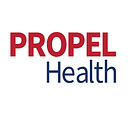Malawi’s Menstrual Period Poverty
By Jessie Kazembe and Martin Meke
On May 28, PROPEL Health’s team in Malawi joined the global community in commemorating Menstrual Hygiene Day, which was themed “Together for a Period Friendly World.” A period-friendly world is one where everyone can access menstrual products, period education, and exist within period-friendly infrastructure. Efforts toward menstrual equity began with a global call for countries to remove taxes from menstrual hygiene products, making them more affordable for young girls and women to purchase, alongside the movement to end the “pink tax.” In Malawi, this directive was quickly implemented to improve access to safe, reliable, and high-quality menstrual hygiene products.
In a country where almost half of the population lives below the poverty line and a significant portion faces extreme poverty (Government of Malawi), the removal of these taxes was a relief for many. However, the reality is that this has not resulted in equitable universal access to menstrual products in Malawi. Even with the tax exemption in place, imported menstrual products remain prohibitively expensive for many young girls. For those with a menstrual cycle lasting around five days, the average monthly cost of pads amounts to MWK 1,300 (just under USD 1) for Purity and Refresh brands, which are low-end products; MWK 2,200 (above USD 1) for mid-range products like Kotex and Confitex; and MWK 6,245 (above USD 3) for high-end products like Always.
In Malawi, the gross domestic product (GDP) per capita is USD 645.2 (Government of Malawi) and is expected to go down to USD 571.93 in 2024, according to the World Bank. As such, this kind of expenditure at the household level ranks low on the list of necessities. As a result, many girls resort to using locally made menstrual products, often crafted from low-quality materials that pose their own set of challenges and risks. In 2024, a study revealed that 79.5 percent of girls and women utilized reusable cloths and/or rags compared to 18.6 percent who opted for disposable absorbents like tampons and sanitary pads.
While reusable pads offer much-needed relief for many, when soaked through, these products can cause discomfort (and in some cases infections). Additionally, when pads are soaked through, there is a fear of spotting or staining outer clothing, compromising a woman’s privacy in the public eye or when her clothes are washed and left out to dry. Such anxiety often limits the participation of girls and women in various forums, especially in schools. So, while the lack of affordable and safe menstrual hygiene products compromises a young girl or woman’s mental and physical health, it can also lead to broader negative impacts on their education due to absenteeism, feelings of shame and embarrassment, and exclusion. These feelings are further exacerbated by the absence of girls’ changing rooms in schools.
As we recognize Menstrual Hygiene Day, we want to champion high-quality reusable pads as a cost-effective and inclusive solution to the widespread lack of access to menstrual hygiene resources. High-quality reusable pads are cost effective compared to disposable pads because they can be used for an extended period of time, typically for months on end. In terms of availability, small organizations and initiatives have been working to promote and distribute high-quality reusable pads in the country to address the challenges faced by women and girls in accessing menstrual hygiene products. However, the number of women and girls who have been reached is not as large as it could be, especially in rural areas.
Thus, we need to be more intentional in the way we prioritize investments into menstrual hygiene management. This includes establishing initiatives to make high-quality reusable pads more accessible in rural areas, schools, and small organizations, along with ensuring that the raw materials for the production of reusable pads are readily available to everyone. Additionally, it’s vital to foster a supportive environment for girls and women to manage their periods with dignity and confidence. This will allow them to participate in daily activities so that they can seize opportunities to thrive and realize their full potential, even during menstruation.
The Malawi government’s recent inclusion of menstrual health and hygiene in the revised sexual and reproductive health and rights (SRHR) policy is a significant step forward. It offers a beacon of light, signaling a shift in societal attitudes and a commitment to addressing menstrual health and access to resources for all women. The inclusion is progress toward making menstruation a normal fact of life in Malawi, with intentional interventions that are well coordinated, integrated, and intentionally implemented across sectors. PROPEL Health supported the advocacy for the integration of menstrual health into the country’s new SRHR policy, emphasizing the advantages of providing a comprehensive platform for universal access to information, resources, services, and products.
Jessie Kazembe is a Technical Advisor, and Martin Meke is a Technical Advisor, WASH. Both work for the PROPEL Health team in Malawi.
